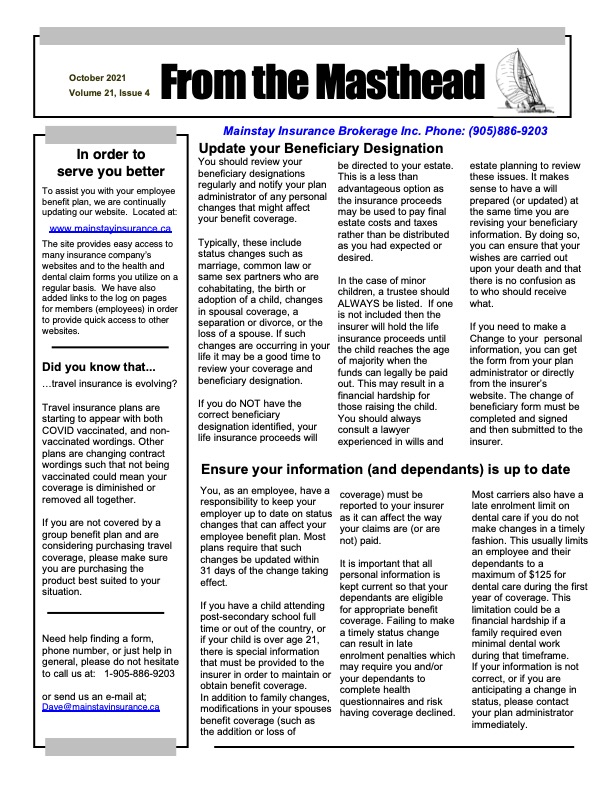There has been a fair amount of discussion around vaccination policies and the impending unpaid leave of absences, with possible termination coming down the road. At the moment, they are only discussion as we have seen no court cases (yet) to provide direction. Arbitration cases have gone both ways, but it’s still early days. The article below identifies some of an employers considerations.
As workplaces around the country implement employee vaccination policies in response to the pandemic, the obvious question arises of what can be done to enforce them. A well-crafted policy will include provisions on what discipline may apply to employees who fail to comply. However, the existence of a policy statement regarding treatment of non-compliant employees does not, in and of itself, justify all disciplinary measures carried out thereunder.


